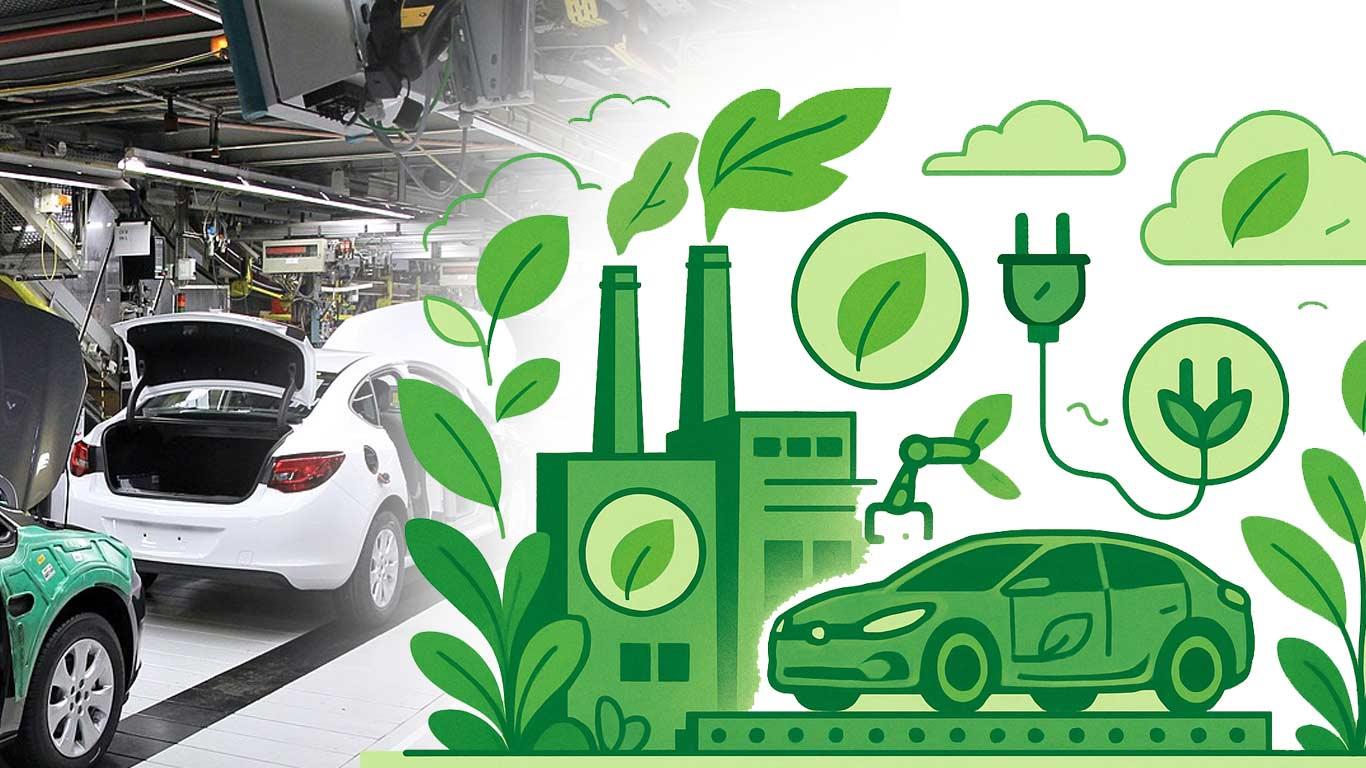
India Auto Sector Could Cut Manufacturing Emissions By 87% Through Green Production Methods: CEEW Study
The study by the Council on Energy, Environment and Water (CEEW) reveals that achieving this dramatic reduction requires a fundamental transformation in how all vehicles are manufactured, including internal combustion engines, hybrids, and electric vehicles.
The research emphasises that green electricity, low-carbon steel production, and cleaner supply chains are equally critical to the industry's decarbonisation as the transition to electric vehicles.
Major automotive manufacturers including Tata Motors, Mahindra & Mahindra, TVS Motors, Ford, BMW, Mercedes-Benz, and Toyota have established emission reduction targets and joined the Science-Based Targets initiative in recent years.
While these companies have expanded their electric and hybrid vehicle offerings, the study calls for broader action addressing Scope 1, 2, and 3 emissions throughout their supply chains.
Dr. Arunabha Ghosh, CEO, CEEW, stated that leading in a low-carbon global economy requires decarbonising both the vehicles produced and the industrial processes used to manufacture them.
He emphasised the need for automakers to transition to clean energy sources for their factories and ensure suppliers adopt sustainable practices for critical materials such as steel and rubber.
The Delhi-based research organisation's analysis indicates that while vehicle production could increase fourfold to 96 million units by 2050, manufacturing emissions can be significantly reduced through a complete shift to renewable electricity, adoption of hydrogen-based and scrap-intensive steelmaking processes, and implementation of low-carbon procurement standards across the supply chain.
Currently, Scope 3 emissions, primarily from materials like coal-intensive steel and rubber production, represent 83 percent of the Indian automotive industry's carbon footprint.
The report warns that simply electrifying vehicles without addressing these upstream emissions will fail to resolve the majority of climate-related challenges facing the sector.
The study also examined a scenario with increased hybrid vehicle adoption as a transitional strategy before widespread electric vehicle deployment.
While this approach would reduce some energy demand, emissions levels remain higher than those achievable through direct electric vehicle transition due to continued reliance on combustion engines.
The report characterises hybrid vehicles as offering short-term efficiency improvements but notes they cannot substitute for achieving zero-carbon mobility objectives.
CEEW researchers recommend that original equipment manufacturers view green manufacturing as a strategic advantage rather than merely a climate compliance measure.
As global supply chains increasingly prioritise sustainability standards, Indian manufacturers who decarbonise early are positioned to gain competitive advantages in international markets.
Dr. Vaibhav Chaturvedi, Senior Fellow, CEEW, emphasised the importance of securing green steel, powering manufacturing facilities with renewable energy, and requiring cleaner inputs from suppliers.
He noted that without these comprehensive changes, electric vehicle adoption alone will be insufficient to achieve net-zero emissions targets.
The study advocates for a dual approach combining accelerated electric vehicle adoption with comprehensive decarbonisation of the manufacturing value chain.
If implemented effectively, the research suggests India's automotive sector could serve as a catalyst for the country's broader transition toward net-zero emissions.
(KNN Bureau)
Legal Disclaimer:
MENAFN provides the
information “as is” without warranty of any kind. We do not accept
any responsibility or liability for the accuracy, content, images,
videos, licenses, completeness, legality, or reliability of the information
contained in this article. If you have any complaints or copyright
issues related to this article, kindly contact the provider above.


















Comments
No comment